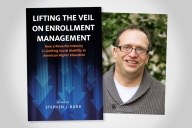You have /5 articles left.
Sign up for a free account or log in.
Over the last year, the Carnegie Foundation for the Advancement of Teaching completed one of the most thorough reviews ever of the Carnegie Classifications, which for decades have been used to group colleges for institutional research and participation in programs, and to create peer groups. The new system gives researchers and educators unprecedented flexibility to group colleges in different ways and attempts to move away from the idea that there is one single way to group colleges.
Many educators have praised the revised system for being more nuanced and sophisticated. Many others have worried about one question: How would the new system affect the U.S. News & World Report rankings? The latter group is now getting its answer. U.S. News, which has based its ranking system on the Carnegie Classifications, will continue to do so -- even if that means some colleges will find themselves in new groupings next year in the magazine's popular (and widely criticized) rankings.
And that announcement in turn appears likely to prompt more colleges to appeal their Carnegie Classification status -- for reasons having very little to do with the actual classifications. Several institutions have already made successful appeals and more are expected.
The reason for the frenzy is that Carnegie this year decided to try to make its classifications (at least the basic institutional part that is the outgrowth of the traditional classifications) more consistent. In the past, Carnegie had allowed dozens of institutions that identified in one way (typically as liberal arts colleges) to stay in the baccalaureate categories even if they offered significant numbers of master's degrees. This pleased colleges that wanted to be grouped in the "top" U.S. News category for liberal arts colleges. But this year, Carnegie decided to enforce its rules, and colleges that met certain tests were placed in master's categories -- much to the horror of college officials.
They have since been lobbying U.S. News to ignore the latest Carnegie changes -- while also lobbying Carnegie to let them stay as strictly undergraduate colleges.
Robert J. Morse, director of data research for U.S. News, said Monday that the magazine has decided to go with Carnegie's system -- even if colleges are moved as a result. Carnegie, he said, "sets the standard for higher education" and it would "not be our role" to disagree with that standard.
If colleges unhappy about their Carnegie placements can get the foundation to change them, U.S. News will honor the changes, Morse said. But the decisions will be Carnegie's. "We're not going to be in the appeals business," he said.
Already, he noted, four colleges have convinced Carnegie to keep them out of master's categories: Bryn Mawr College, Bucknell University, Furman University and Smith College.
For the Carnegie Foundation, which never intended its classifications to be used for magazine rankings, more appeals are taking place and more are expected.
Alexander C. McCormick, a senior scholar at Carnegie who directs the classifications, said that the foundation was now in the position of having some colleges focus on a single part of its classification -- just what it was trying to avoid with the more sophisticated system it has just adopted. "We intentionally introduced a whole set of classifications in explicit acknowledgment that a single classification isn't up to capturing the complexity," he said.
Carnegie will consider appeals based on the validity of the college's claims, not the impact on rankings, McCormick said. Of the U.S. News decision, he said that "it does end up being a fairly powerful influence focusing attention on this one classification that is 36 years old," he said. "There are better ways to do it."
How does Carnegie feel about having colleges come to it motivated by rankings? "We don't think our classification decisions should be driven by how one organization is using or misusing the classification," he said. McCormick added, however, that the foundation has offered to help U.S. News "make better sense of our classifications" and that he is "still hopeful that they will take us up on that offer."








